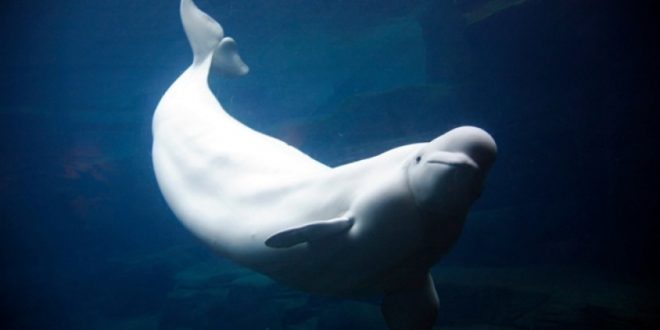A toxin killed two beluga whales that died suddenly in November 2016, according to a five-month-long investigation by the Vancouver Aquarium.
Dozens of toxologists, doctors, and genome specialists contributed to the investigation but could not determine the exact toxin, the aquarium said in a written release. But the investigative team determined the toxin was likely introdued to the whales either through water, food, or human interference.
“The loss of Qila and Aurora was devastating. They were beloved members of our family and the community for more than two decades. Their loss is felt profoundly by our staff, members, supporters, and the public,” said Dr. Martin Haulena, Head Veterinarian at Vancouver Aquarium. “The investigation has helped us understand what happened and, importantly, how we can best ensure the safety and welfare of marine mammals in our care.”
Vancouver Aquarium is currently home to a false killer whale, a Pacific white-sided dolphin, and a harbour porpoise – all receiving long-term care as part of the Aquarium’s Marine Mammal Rescue Centre Program.
Since the passing of Qila and Aurora, the Aquarium has taken several measures to test, evaluate, and reduce risks in the Arctic habitat.
To reduce the risk of a toxin being introduced by food / ingestion:
- An enhanced food-screening process, which far exceeds best practice standards
- All vegetation adjacent to the habitat that could be considered problematic has been, or will be removed .
To reduce the risk of a toxin being introduced by water:
- Mechanical water treatments systems are being overhauled and replaced as a precaution in all habitats that house whales, dolphins, and porpoises
- New, real-time testing and monitoring of incoming and circulating water within the habitat and mechanical systems has been implemented.
To reduce the risk of a toxin being introduced through human interference:
- Significant security updates have been deployed to monitor perimeter access and reduce potential threats of human interference
“We deeply appreciate the assistance of world-class experts during the investigation process, the outpouring of support from members and the local community, as well as the unwavering dedication of our staff and volunteers,” said Dr. Haulena. “The conclusion of the investigation helps bring closure to an extremely difficult situation.”
Agencies/Canadajournal
 Canada Journal – News of the World Articles and videos to bring you the biggest Canadian news stories from across the country every day
Canada Journal – News of the World Articles and videos to bring you the biggest Canadian news stories from across the country every day



